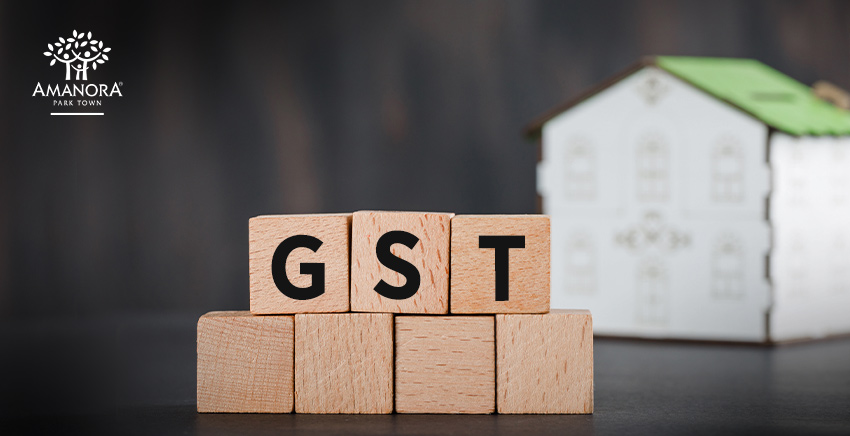Aspiring buyers looking for township projects In Pune need to consider various financial aspects before making their purchasing decisions. The impact of GST on real estate is among the crucial considerations in this context. Let us try to figure out this aspect through some interesting facts and figures.
About the taxes on real estate before GST:
Before the implementation of GST on real estate property in July 2017, the developers had to pay an array of taxes for their residential projects, without any possibility to acquire loans against the total outstanding.
Naturally, while selling the properties to home buyers like you, the developers used to impose the total amount spent on taxes. Again, due to lack of transparency, there was a dilemma of actual pricing as well.
Some of the taxes before the implementation of GST include:
- Value Added Tax (VAT)
- Central Excise
- Local Body Taxes (LBT)
- Octroi on material mobilisation
- Entry Tax
- Service Tax.
Latest update on GST in the real estate sector:
After a lot of scrutinisation, the Indian Government implemented GST (Goods and Services Tax) in July 2017. GST was the highest tax reform after independence. GST on residential property was earlier on a higher side. Yet, to encourage the real estate sector to attain the ambitious scheme, ‘Housing for all till 2022’, the Government decided to lower the GST rates till April 2019.
How GST applies to affordable properties:
The interesting fact which is not known to many is that no GST applies to ready-to-move-in properties. GST on real estate property for ‘Affordable Housing’ is charged at 1% without Input Tax Credit (ITC) on property transactions. So GST is beneficial to interested property buyers like you.
There are certain norms to determine if a property comes under the category of ‘Affordable Housing.’ For instance, in urban areas, the Government has declared houses that cost less than ₹ 45 Lacs and carpet area not more than 60 square meters as ‘Affordable Housing.’
GST on under-construction properties:
Though “ready-to-occupy” flats don’t attract GST in India, some construction services are taxable under the new GST scheme. GST on under construction property for homes bought under the credit-linked subsidy scheme, i.e., Pradhan Mantri Awas Yojana, will be charged at 8%. Again, under-construction homes without the subsidy would have a GST of 12%.
Significant facts about GST on real estate:
- As an impact of GST on real estate, the banks and financial institutions offering housing loans may charge GST on their processing fees, property valuation, and legal formalities, as these are ‘services’ relevant to housing loans.
- If the flat owners pay an amount more than ₹ 7,500 per month, as maintenance, GST on residential property would be applicable on the entire amount. Again, Residents’ Welfare Associations or Housing Societies need to pay GST if their annual turnover is over ₹ 20 Lacs.
- GST won’t apply if you rent out your property for residential purposes. Yet, if you rent out your property for commercial use, GST is applicable if your rental income exceeds ₹ 20 Lacs per annum.
Takeaway:
It is wise to look out for a prestigious township project offering ready-to-move-in flats with a completion certificate to save on GST. Amanora Park Town is among the premium township projects in Pune that can be considered in this regard.
So, book a ready-possession flat in this township project today, cruising through the options and an array of glamorous amenities the project offers now!





